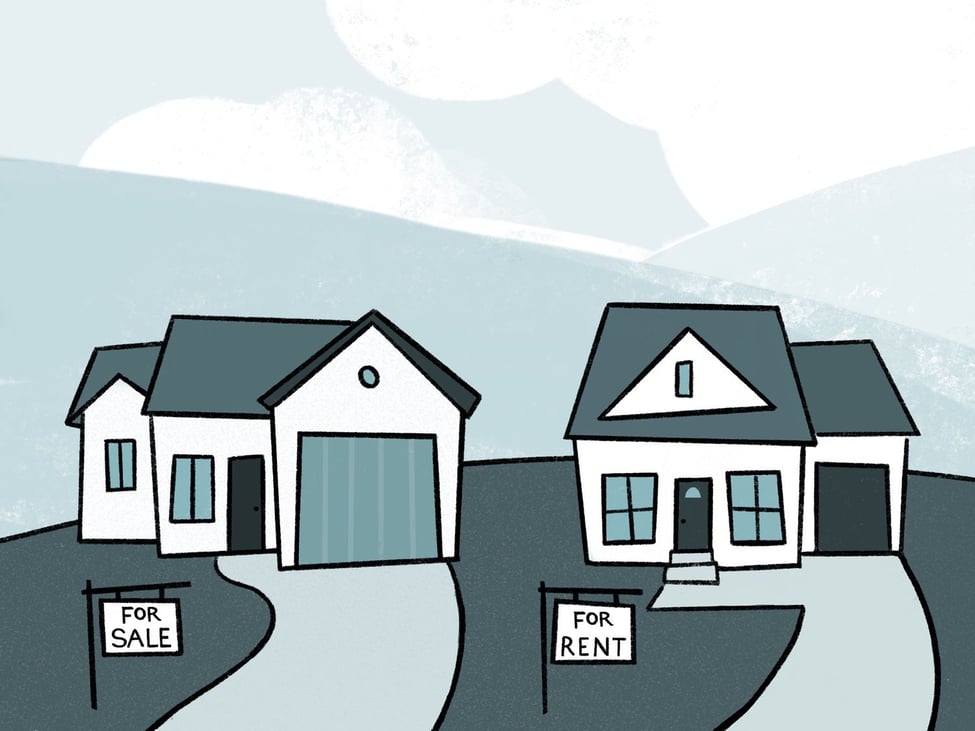So, you’ve finally done it — made the leap from renter to Toronto homeowner. Huge congrats! 🥂 Your IG is probably still buzzing with champagne-popping, key-holding, “We did it!” moments. And honestly? You should soak that up. But once the closing day high wears off, what comes next?
Here’s what no one tells you about your first year as a homeowner — and what you can expect now that you’ve got the keys.
It Hits Different When It’s Yours
Before we dive into the details, let’s start with the truth: homeownership feels different. That first time something breaks and there’s no landlord to call? Yeah — that’s when it gets real. But here’s the flip side: you now have full control. Want to paint that accent wall? Go for it. Thinking of upgrading your kitchen faucet? You don’t need permission anymore.
It’s a big shift, and it takes time to adjust. But you’ve got this — and we’re here to help every step of the way.
For New Condo Owners: Let’s Talk Numbers
Here’s what many first-time condo owners overlook — your mortgage is just the beginning.
Budget for these monthly (and yearly) costs:
Condo maintenance fees – These usually go up 2–5% per year. If your building is new (under 2 years), brace for bigger increases early on.
Property taxes – Sometimes they’re rolled into your mortgage; other times, you pay them separately (in Toronto, that’s once a year or 3x/year). You can set up online payments here.
Utilities – You may now be covering hydro, heat, or cooling that used to be included in your rent.
Contents insurance – Your building covers the exterior, but you’re on the hook for everything inside your unit (think appliances, flooring, even your toilet).
Repairs and renos – If your sink leaks or the washer stops working, guess who’s fixing it? Yep — it’s you now.
Your Condo Corporation: Know What You’re Part Of
Welcome to shared ownership. Your condo corporation plays a huge role in your homeowner experience.
Here’s what we recommend:
Read the board meeting minutes + annual reports — seriously. They tell you what’s coming down the pipe (like renos or fee hikes).
Attend the AGM — decisions get made here. Be in the know.
Understand your responsibilities — what’s yours vs. the corporation’s? Important when something breaks.
Brush up on the rules — your dream reno may need formal approval.
Reserve Fund = Your Building’s Emergency Fund
Remember that “reserve fund study” you skimmed during your purchase? Time to revisit it. Every month, part of your fees goes into a pool to cover major repairs (think elevators, roof, lobby updates). If the fund’s not healthy, special assessments can happen — and they’re not cheap. Start putting aside a little cushion just in case.
For New House Owners: You’ve Got the Whole Package
Owning a freehold home means more freedom — and more responsibility. Here’s what’s coming your way:
Ongoing costs to plan for:
Property taxes – Same deal as with condos; find payment options here.
Utilities – Now you’re covering everything: water, gas, electricity, garbage, recycling.
Home insurance – You’re no longer just insuring stuff — now it’s the whole building.
Maintenance budget – Set aside 1–3% of your home’s value every year for upkeep.
And trust us, things will come up. Whether it’s a weird furnace noise or a mystery stain on the ceiling, you’re now the one calling the plumber (or Googling what a sump pump is at 11pm). Build your emergency fund and start collecting reliable contractor contacts now — your future self will thank you.
Buyer’s Remorse? It’s Normal.
Yep — it happens. Maybe you traded location for square footage. Maybe you chose a place without parking. Maybe you’re suddenly wondering, Did I buy the right place?
Here’s the truth:
Everyone makes compromises in this market
Your first home doesn’t have to be your forever home
Focus on what you can change — and let go of what you can’t
Love Thy Neighbour
Whether you’re in a condo or a house, your neighbours matter now. You’re not just passing through anymore — you’re part of the community.
Some tips:
Introduce yourself (even a quick “Hey, I’m new here!” goes a long way)
Learn the unspoken rules of your street or building
Join your local Facebook group or condo community page
Handle any neighbour issues with grace — you might be living next to them for years
You’re In It Now — And That’s a Good Thing
Homeownership comes with a big psychological shift. If you’re feeling a little “stuck” now that you can’t just give 60 days’ notice and move on — that’s normal.
Here’s how to shift your mindset:
Remember: you can rent out your property later if life changes
Focus on building equity, not just “staying put”
Make small upgrades that help your space feel like yours
Keep perspective — the long-term wins of owning are real
Final Thoughts
That first year? It’s a steep learning curve. But you don’t have to go it alone. Keep a running file of all your documents. Build your emergency fund. And know that your relationship with your REALTOR (hi 👋) doesn’t end on closing day — we’re here for the long haul.
You did something huge — you got on the property ladder in one of the toughest markets in Canada. Even on the hard days, don’t lose sight of that.
Welcome to homeownership. We’re so glad you’re here.

